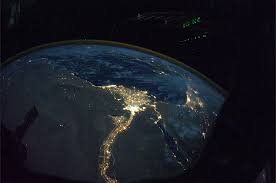The necessity for large-scale, integrated and transnational networks, which developed countries have long implemented, will need to be reconsidered, it seems, in the path towards African development. A combination of factors, ranging from demographic mobility to geographic variations, and from small economic resources to political uncertainty, make the hope for regional coordination somewhat unrealistic. But increasingly, engineers, big and small, are reinventing devices under a new shape: off-grid. Engineering News writes on the upcoming Africa Energy Indaba, planned for early 2019, and says: “The landscape and population distribution of the African continent underscores why major power plants are unable to reach and serve all areas. As many of these regions are located so far from other urban centres, extending a country’s main electrical grid remains unaffordable.” These systems do not require any connection to existing networks, be they water or electricity, or form their own network. The globalized economy now gives access to all countries to these new solutions, which are often affordable, especially for national or regional budgets.
Off-grid systems can be defined as an appliance which does not need to be connected to a network to operate and can serve small communities in a self-sustaining manner. They are characterized by their limited girth, cost, and are nimbler than traditional, integrated, on-grid systems. Such systems apply to telecommunications, water treatment, power production, and other fields. Although there are many reasons a country would eventually want a nation-wide fully integrated system for water or power, namely, they do involve the risk of building the networks at the wrong place, when the hoped-for economic development happens elsewhere than planned. Add to this the specificity of African mobility, and the puzzle often becomes close to unsolvable. But off-grid solutions turn the mobility from a problem to an opportunity: with mobile water and power units, not only can any area be developed quickly, without awaiting political initiatives, but the underlying infrastructures can also be moved when necessary.
African countries are more and more turning to these systems as the new solutions towards an energetic transition and sustainable water access, after previous to develop large-scale systems have failed. In this quest, governments are no longer turning to one another, but to private companies. Emiliano Bellini writes : “Portugal’s state-owned power provider, EDP has agreed to acquire a minority stake in SolarWorks, a Mozambique-based start-up specializing in the commercialization of decentralized solar energy solutions to domestic and business customers without connection to national grid [...]This investment by EDP marks the start of the new strategy defined for the A2E area, in which it has committed to apply 12 million euros over the next three years with the objective of impacting 200 thousand people, mainly in developing countries.” With new technological advances, solar power is becoming accessible to remote areas, which can finally have access to electrical power. Solar panels can be linked to off-grid power storage units and provide impoverished populations with a reliable source of electricity. The development of electric vehicles has fueled major advances in battery storage, which is now applicable to homes and industries. Newly-available power storage, an age-old puzzle which is currently being solved, is a real game changer for Africa, and is causing large-scale off-grid projects to appear. Reporter Tom Kenning writes : “Indian EPC firm Sterling and Wilson has won its first large-scale hybrid and energy storage turnkey EPC contract order in Western Africa, including what it believes to be both the largest battery storage project and single battery installation in the whole continent [...] The microgrid backed with batteries will be able to provide one-day power autonomy to the educational institutions, helping them to run efficiently and to spend more on school programs.” This opens new possibilities for Africa, and water access will benefit these new techs as well. Patrick Couzinet, CEO for Veolia Water Technologies, says: “off-grid solution are a simple, affordable and flexible solution, for all the populations in remote areas.” The water giant has recently developed mobile truck-loaded water treatment and extraction solutions, in its new African program. Additional systems, such as rain catchment, and storage, are now an immediate and accessible solution to make clean water a reliable resource, unlocking everything downstream.
A large number of solutions which have been deployed in Africa and yielded results below expectations may have done so because they had been designed in different circumstances and then blindly transplanted, notwithstanding the specifics of the African economies. This does not amount to say that foreign-designed solutions have no future in Africa: quite the opposite. But solutions designed from the bottom up, and not from the top down, have the best chances of wrapping around the specific landscape, embracing African mobility and resolving the underpinnings of economic development. With off-grid solutions, resource extraction (such as water and power) can be the primer to economic development.
Off-grid systems can be defined as an appliance which does not need to be connected to a network to operate and can serve small communities in a self-sustaining manner. They are characterized by their limited girth, cost, and are nimbler than traditional, integrated, on-grid systems. Such systems apply to telecommunications, water treatment, power production, and other fields. Although there are many reasons a country would eventually want a nation-wide fully integrated system for water or power, namely, they do involve the risk of building the networks at the wrong place, when the hoped-for economic development happens elsewhere than planned. Add to this the specificity of African mobility, and the puzzle often becomes close to unsolvable. But off-grid solutions turn the mobility from a problem to an opportunity: with mobile water and power units, not only can any area be developed quickly, without awaiting political initiatives, but the underlying infrastructures can also be moved when necessary.
African countries are more and more turning to these systems as the new solutions towards an energetic transition and sustainable water access, after previous to develop large-scale systems have failed. In this quest, governments are no longer turning to one another, but to private companies. Emiliano Bellini writes : “Portugal’s state-owned power provider, EDP has agreed to acquire a minority stake in SolarWorks, a Mozambique-based start-up specializing in the commercialization of decentralized solar energy solutions to domestic and business customers without connection to national grid [...]This investment by EDP marks the start of the new strategy defined for the A2E area, in which it has committed to apply 12 million euros over the next three years with the objective of impacting 200 thousand people, mainly in developing countries.” With new technological advances, solar power is becoming accessible to remote areas, which can finally have access to electrical power. Solar panels can be linked to off-grid power storage units and provide impoverished populations with a reliable source of electricity. The development of electric vehicles has fueled major advances in battery storage, which is now applicable to homes and industries. Newly-available power storage, an age-old puzzle which is currently being solved, is a real game changer for Africa, and is causing large-scale off-grid projects to appear. Reporter Tom Kenning writes : “Indian EPC firm Sterling and Wilson has won its first large-scale hybrid and energy storage turnkey EPC contract order in Western Africa, including what it believes to be both the largest battery storage project and single battery installation in the whole continent [...] The microgrid backed with batteries will be able to provide one-day power autonomy to the educational institutions, helping them to run efficiently and to spend more on school programs.” This opens new possibilities for Africa, and water access will benefit these new techs as well. Patrick Couzinet, CEO for Veolia Water Technologies, says: “off-grid solution are a simple, affordable and flexible solution, for all the populations in remote areas.” The water giant has recently developed mobile truck-loaded water treatment and extraction solutions, in its new African program. Additional systems, such as rain catchment, and storage, are now an immediate and accessible solution to make clean water a reliable resource, unlocking everything downstream.
A large number of solutions which have been deployed in Africa and yielded results below expectations may have done so because they had been designed in different circumstances and then blindly transplanted, notwithstanding the specifics of the African economies. This does not amount to say that foreign-designed solutions have no future in Africa: quite the opposite. But solutions designed from the bottom up, and not from the top down, have the best chances of wrapping around the specific landscape, embracing African mobility and resolving the underpinnings of economic development. With off-grid solutions, resource extraction (such as water and power) can be the primer to economic development.



















